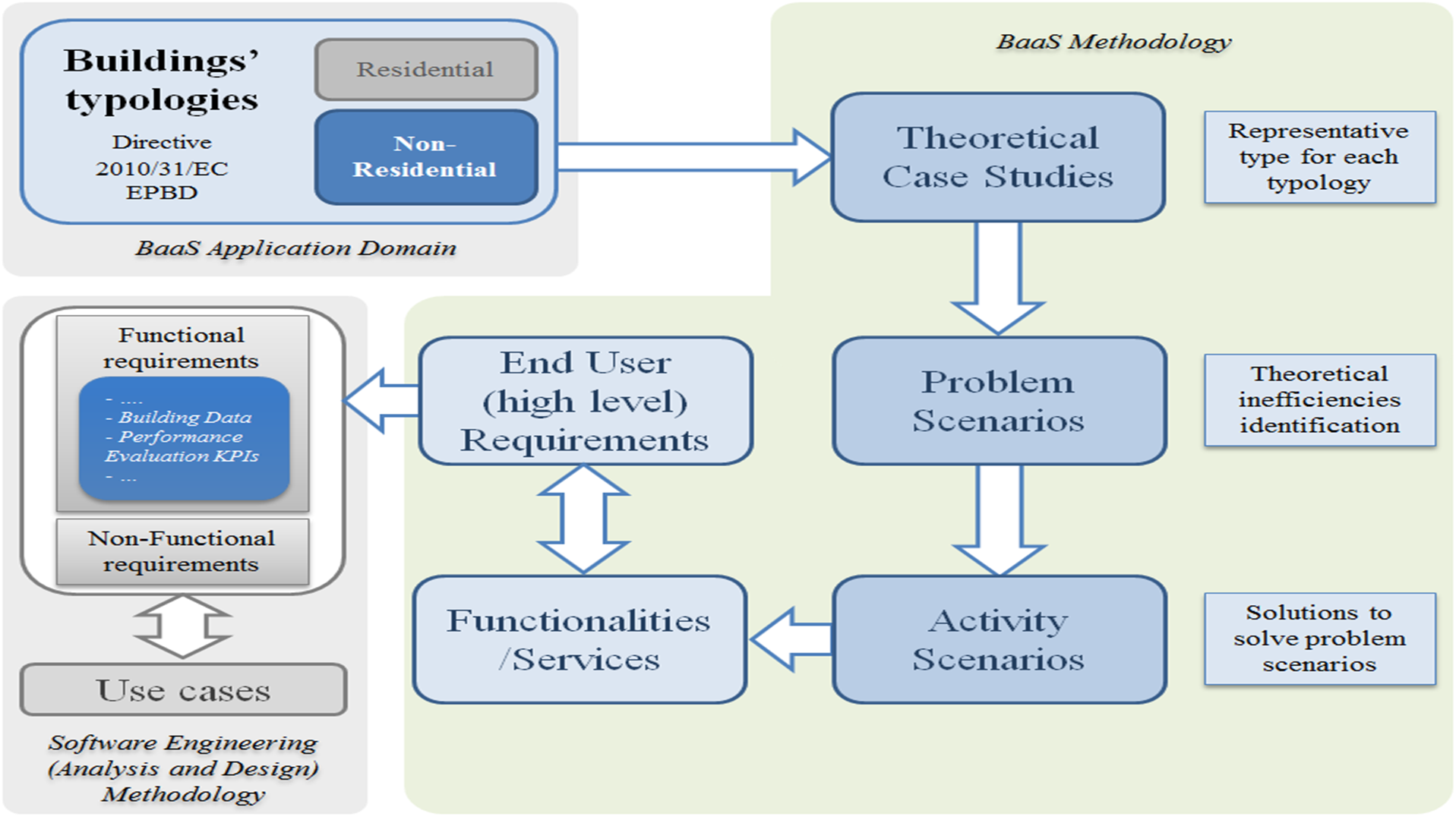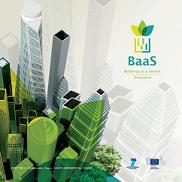WP1: Theoretical Case Studies and End-user Acceptance
Objectives
WP1 is an end-user-driven work package. It continuously monitors the proper alignment of RTD outcomes with the application domain of “non-residential buildings, in operational stage. The main objectives of WP1 will be to reach:
- A proper alignment with the application domain assuring replication of the BaaS solution on the whole typologies of buildings.
- A methodology of measurement and verification (M&V) of Energy Savings. BaaS aims on enhancing and using the results of on-going EC funded initiatives.
- A suitable end-user acceptance level by the end of the project.
Approach
To achieve this objective the following will be required:
- Develop eight theoretical case studies to analyse each of the eight typologies of buildings which completely characterize the BaaS application domain.
- A set of key performance indicators (KPIs) has to be identified and defined for each case study.
- These theoretical case studies will be the starting point for the remaining tasks in WP1 and also for the scientific and technological Work Packages 2, 3, 4, and 5.
- After the validation in both demonstration buildings (WP6), in this WP1 the replication potential of the BaaS Solution will be analysed over the remaining six buildings typologies which were not selected as Demonstration Buildings.
- End-user acceptance will be accomplished by analysing the replication potential in tandem with the results of a sensibility study.
- To achieve the savings evidence (through which potential benefits will be calculated in the sensibility study), this work package, in conjunction with the demonstration WP6, will define (in WP1) and implement (in WP6) a methodology to validate the expected savings associated to the project outcomes. Data obtained from WP6 will be used to develop the sensibility study corroborated with real evidence of savings.

Task 1.1: Theoretical Case Studies Definition
Eight theoretical case studies will be developed to analyse each of the eight typologies of buildings which characterize the BaaS application domain. For each of the eight theoretical case studies, an analysis will perform to identify problem scenarios and functional and non-functional requirements for which the BaaS system has been designed to address. This theoretical case studies have to collect information about installed energy systems and geometrical and structural information.
Task 1.2: Methodology of Measurement and Verification of Energy Savings
A methodology will be identified and adjusted to record evidence of energy savings and CO2 emissions reduction and to measure and certify, in an accurate way, energy-savings attributed directly to the BaaS system (as an isolated retrofit-measure). In the project, the retrofits or (Energy Conservation Measures) ECMs to isolate will be the implementation of the BaaS Solution.
Task 1.3: End-User Acceptance Assessment
It is a continuous monitoring and guidance task running in a parallel with the scientific and technical work packages, with the goal of ensuring proper implementation of Task 1.1 requirements in WP4 and WP5 and end-user acceptance. This task will be in charge of the necessary functional requirements, partial-results monitoring and validation (dashboard. Support decision tools, etc.). At the end of the project, to ascertain end-user acceptance.
Achievements
In this first phase of the project, Theoretical Case Studies were analysed from the point of view of the problem scenarios affecting them, and solutions to solve these problems, i.e. the activity scenarios. Thus, the functionalities and services that will implement these activity scenarios, were used to define all the requirements that the BaaS System should fulfil from the end-user point of view) that will be used by the technological WPs of the project.
Besides, main existing measure and verification protocols have been reviewed, emphasizing on a comparative among their characteristics focusing on how them evaluate savings in the ICT context. As result of this study, the International Performance Measurement and Verification Protocol (IPMVP) was selected for measuring the savings due to the BaaS system.
Contact
Work package leader: MSc.Eng. José L. Hernández <
This email address is being protected from spambots. You need JavaScript enabled to view it.
>. Fundación CARTIF. Boecillo (Valladolid, Spain)
Participants:
- NEC Laboratories Europe.
- Honeywell Prague Laboratory.
- Fraunhofer IBP.
- Technical University of Crete.
- University Colleage of Cork-Iruse.
- Dalkia Energía y Servicios.





